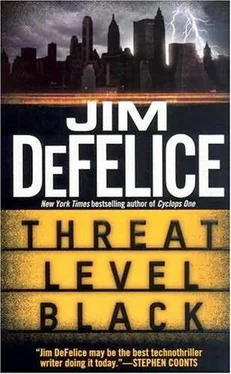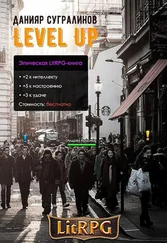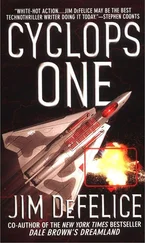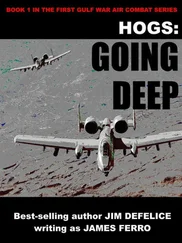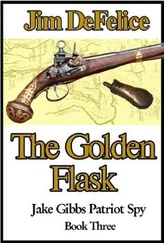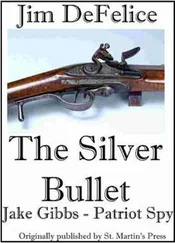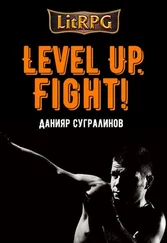“They’re curious,” said the corporal behind the wheel. “I get the feeling they think we have two heads and they’re looking to see where we’re hiding the other.”
Tyler watched Somers as he carried on similar conversations with the staff at the headquarters and then later at their billet, a villa that had apparently been vacated by a high-ranking government official during the coup. While Tyler had initially wondered whether to take the older man along, he saw now it had been a good move. In just a few hours the historian had probably done the work of a dozen toiling analysts and poll takers, eliciting candid, off-the-cuff remarks. The consensus among American service people was clear: The North Koreans would be willing to go along with things for the short term at least, so long as there were reasonable measures to both keep them safe from retribution and to feed them.
“Hungriest people I ever saw,” one of the lieutenants told them.
That seemed to be the bottom line, and Tyler made sure to repeat it several times during their conference call with Moore at the end of the day. After the call, he thought maybe that was his problem as well. A full meal, a bit of rest, and he’d be ready for whatever happened in the morning.
Howe was on his second cup of coffee when the tall man stopped in front of his booth. His round, Asian face had been marked by a double scar along the right cheek, as if he’d been scratched there by a two-fingered claw.
“Are you Howe?” asked the man.
The question took him by surprise: If Wu worked for NADT, as he’d thought, he wouldn’t need to ask. And Howe didn’t remember meeting anyone with a scar so prominent on his face.
If he suggested they go anywhere, Howe told himself, he’d resist.
Wu slid into the booth. The waitress came right over and he ordered a decaf coffee. When she left, he reached into his pocket and took out a thin wallet.
“I’m with the CIA,” said Wu, showing his credentials. “I’m sorry to make such a production out of this. I couldn’t trust your phone at the motel, and I have to have the report together in a few hours.”
“Which report?” asked Howe.
“Someone on the NSC staff mentioned that you saw UAVs on the airstrip in North Korea.”
Howe nodded. Wu took out a small notepad. He’d written a brief summary of one of the reports Howe had made earlier. They went over it quickly.
“That’s basically what I saw,” said Howe when he finished. “I didn’t get that close to them.”
“But they were definitely there?”
“Yes, sir, they were.”
Wu nodded. He waited as the waitress arrived with his coffee, then took a few sips before continuing.
“The Koreans aren’t known to have any sort of craft like this,” said Wu.
“So I’ve heard.”
“You didn’t take a picture or anything?”
Howe laughed. “I’m sorry. I don’t know how much you know about what I was doing there and what happened.”
“I had to ask.”
“I’m sure of what I saw, but only of what I saw. Whether those aircraft were real airplanes, UAVs, whatever, I don’t know. I talked to someone at NADT who made some guesses about how they’d be powered and that sort of thing. I can have him get in touch with you tomorrow.”
“That’s all right. I think really I have enough.” Wu sipped his coffee. Obviously he had access to any number of experts. “One last question: Would you agree that these aircraft should be secured and examined?”
“Absolutely.”
The CIA analyst nodded, then got up and reached into his pocket for his wallet.
“I got it,” Howe told him. He stayed in the booth for a while, sipping his coffee and looking at a real estate magazine he’d grabbed on the way in. He left the waitress a nice tip and headed back to the motel.
It was Thursday, and Blitz and the CIA director always met for breakfast. The Korean crisis didn’t change that, but it did make them move up their schedule and change the location of their meeting: Blitz found himself walking up the path to the director’s home at five in the morning, accompanied by an aide and two NSC security escorts, Army Delta troopers in plainclothes on special assignment. He was met at the door by one of the director’s own security people. Inside the kitchen he found the director’s wife, Jean, presiding over a pan of home fries and another of sausage.
“Well, if I had known we would have such a good cook on duty, I would ask to meet here more often,” said Blitz.
Jean gave him a good-natured but tired smile, then asked what sort of omelet he wanted.
“I told you, load him up with cholesterol,” said Jack Anthony, entering from upstairs. He smelled as if he’d just come from the shower, though he was fully dressed and looked considerably more awake than his wife.
“Would you like blue cheese and mushrooms?” asked Jean.
“That would be fantastic,” said Blitz. He’d meant the compliment. This was shaping up as the best meal he’d had in weeks.
Blitz and Anthony had a very complicated relationship. Professionally, the men couldn’t stand each other: They were bitter rivals for power and influence, and they had come to their positions by entirely different paths. Blitz had been in and out of government and academia, and while he was acknowledged as one of the country’s foremost experts on international relations, he had been appointed largely because of his long-term relationship with the President. Anthony, on the other hand, had spent his entire adult life working for the government. Much of that experience had come at the CIA, but he had also worked for the NSA, the Pentagon, and briefly the State Department. He professed to be apolitical, though his congressional connections were strongest with members of the other party.
Personally, though, the two men got along very well. Not only were they baseball fanatics, they were both Yankee fans-a minority in Washington, D.C. Anthony had been a guest speaker for Blitz several times when Blitz was teaching, and had even informally reviewed one of Blitz’s books before it was published, giving him a dozen pages of useful notes.
“Let’s talk for a minute,” said Jack, pointing Blitz toward the nearby family room. The oldest Anthony daughter lived nearby and had recently had a baby; a playpen was set up in the corner of the room. Blitz sat on the sofa next to it, listening as Anthony quickly ran down the important points in a CIA analysis of unaccounted-for North Korean weapons. The report would be delivered as an unofficial memorandum later that morning to the NSC, which would use it to make a recommendation on further Korean operations.
“We’ve now accounted for all but one hundred of the fuel tubes from the reactor,” said the CIA head, focusing on the most important finding.
“A hundred? That’s a hell of a lot to lose.”
“We haven’t lost them, we just haven’t found them yet,” said Anthony. “That’s a big difference. We’re not even one hundred percent sure they’re gone.”
The material had been at Yonbyon, the nuclear facility roughly sixty miles north of the capital. A large number of the fuel rods had been recovered or accounted for, but even a few dozen could present a serious threat. While processing their fuel into a bomb would probably be beyond the capabilities of all but a handful of governments, the material could be used in a so-called dirty weapon, spreading radioactive waste in a high-value site.
“These weren’t used for another bomb?” Blitz asked.
“We haven’t completely ruled that out,” said Anthony. “But we have a handle on the bomb facilities and it seems unlikely.”
“Accounting for the fuel tubes has to have the highest priority,” said Blitz.
Читать дальше
